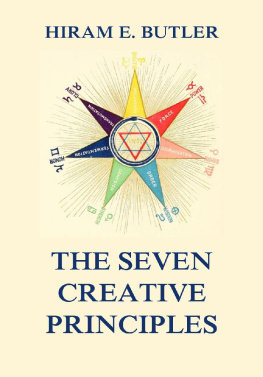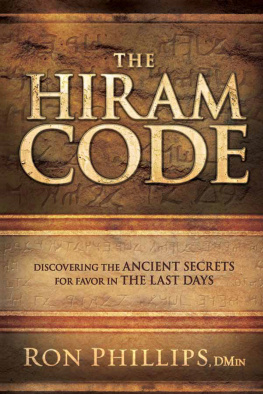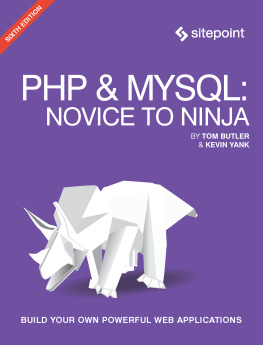Hiram E. Butler - The Seven Creative Principles
Here you can read online Hiram E. Butler - The Seven Creative Principles full text of the book (entire story) in english for free. Download pdf and epub, get meaning, cover and reviews about this ebook. year: 2016, publisher: Jazzybee Verlag, genre: Religion. Description of the work, (preface) as well as reviews are available. Best literature library LitArk.com created for fans of good reading and offers a wide selection of genres:
Romance novel
Science fiction
Adventure
Detective
Science
History
Home and family
Prose
Art
Politics
Computer
Non-fiction
Religion
Business
Children
Humor
Choose a favorite category and find really read worthwhile books. Enjoy immersion in the world of imagination, feel the emotions of the characters or learn something new for yourself, make an fascinating discovery.
- Book:The Seven Creative Principles
- Author:
- Publisher:Jazzybee Verlag
- Genre:
- Year:2016
- Rating:4 / 5
- Favourites:Add to favourites
- Your mark:
- 80
- 1
- 2
- 3
- 4
- 5
The Seven Creative Principles: summary, description and annotation
We offer to read an annotation, description, summary or preface (depends on what the author of the book "The Seven Creative Principles" wrote himself). If you haven't found the necessary information about the book — write in the comments, we will try to find it.
The Seven Creative Principles — read online for free the complete book (whole text) full work
Below is the text of the book, divided by pages. System saving the place of the last page read, allows you to conveniently read the book "The Seven Creative Principles" online for free, without having to search again every time where you left off. Put a bookmark, and you can go to the page where you finished reading at any time.
Font size:
Interval:
Bookmark:
The Seven
Creative
Principles
HIRAM E. BUTLER
The Seven Creative Principles, H. E. Butler
Jazzybee Verlag Jrgen Beck
86450 Altenmnster, Loschberg 9
Deutschland
ISBN:9783849606664
www.jazzybee-verlag.de
admin@jazzybee-verlag.de
CONTENTS:
These Lectures are published at the particular request of the members of the Society for Esoteric Culture, before which body they were delivered during the spring of 1887; an earnest desire having been unanimously expressed to possess the same in permanent form.
They will be found highly suggestive and valuable to thinking people, on account of the original views presented, and the novel and forcible analysis and treatment of the great subject of Creation.
They contain so many central thoughts that are new to the general public, that, in treating the several Principles, some repetition has been found necessary in the different lectures, on account of the mutual dependence and interrelation of the Seven; but not more than was deemed essential to fully impress and enforce the central facts and workings of Nature.
They are not submitted as labored and polished essays, but rather as gushing springs from the great fountain of natural Truth, to refresh the soul, strengthen the mind, and open the eyes of the spiritually inclined to possibilities of attainments not now thought of.
Editor.

The subject selected for the lecture of this evening is the Idea of God. All religions and all systems of occult science, from the earliest history of the world to the present time, have been characterized entirely by that ideal of God which has been held by the people with whom these systems originated.
The word God in all languages of the world, with perchance the exception of the English, has carried with it the idea of power. In the Hebrew language, for instance, we find, as the expression of the idea, the word El or Elohim, which embodies and expresses the idea of power or almighty creative power; and in all the languages and religions of the world the word selected for the expression of a people's conception of a Supreme Being had for its principal signification the idea of power, a power that was over and above all, and that was not only power in itself, but the cause and source from whence all manifestations of power emanated.
When scientists search for the prime cause of creative energy, they commence by examining the methods of nature. They observe the growing vegetation, they see the molecules of matter gathered together by the forces of the great mother earth; with the aid of the microscope they trace the formation of these molecules from a stage where atoms are too minute to be discerned, even by the magnifying lens, and arrive at the conclusion, that, from all that is revealed, the process of building matter into form is invariably the same, and that beyond the molecules and atoms that can be discerned there are myriads that are imperceptible, and whose existence can be affirmed only by the unanswerable argument of analogy and logic. The creative force they have thus far been unable to discover, but the result of a creative force is fully manifest, an interior power that builds and demonstrates, and from which orderly and harmonious structures arise, emblems of an interior and invisible order and harmony, be its source what it may, yet ever orderly and expressive of method and intelligence in its creative manifestations.
The materialistic scientist has usually arrived at the conclusion that matter has in itself the requisite potency to build orderly structures, beyond which he cannot go, and thus is empty of adequate or satisfactory solution of the great problem of life.
In our effort to present to your minds our ideal of God, we shall endeavor to enable you to conceive of a Supreme Being who has attributes much broader and greater than has heretofore been generally accepted. We do this because we believe that in order to attain to the knowledge of grand truths and states of unfoldment one's conception of a great, all-pervading divine essence must embrace the grandest and most ennobling ideal of which human nature is capable. It is only necessary to look into the history of the world to see how closely the character of the nations has been moulded by their ideals of God. The nations which have believed in one or many gods gods whose principal endowments were those of the worst attributes of human nature; who were vindictive, jealous, constantly warring with each other or with their subjects modeled their lives in conformity with their belief, justifying their desire for revenge and domination by force, the strong oppressing the weak b}the power of their own might, thus honoring and imitating the overbearing, unsympathetic ideal gods of their imagination. Thus we find in all history that according to their ideal of God such has been the character of the people.
Man is of necessity a religious being. The idea of a God has possessed all nations and classes. A people so low down in the scale of unfoldment, who have not had an idea of God calling it " The Great Spirit," as did the American Indians, or by some other significant name has never yet been found. Why this should be would be a difficult question to answer, were it not that at the foundation of all being there is a something oftentimes vague and indefinite, but that nevertheless gives a consciousness of an infinite, an over-power, upon which man in his necessities may rely, unto which he may pray or offer sacrifice, propitiate by destroying his enemies, or anger by neglect or scorn of its power.
Scientists tell us that we cannot understand or even think of anything of which we have not some correspondent within ourselves. Thus far we bear them company; but when they state that we can know nothing but that of which the five senses take cognizance, we take issue, for this is far from true. When we speak of cause, which of the material senses perceives or comprehends it? Not one of them can do it! They cannot perceive the commonest principle in nature, which is force! To what does such a materialistic assumption lead? Let us consider. You may feel the weight of the stone that falls upon your hand or person, but do you feel the impelling force? No! Gravity was there before and after the fall of the stone, but you were unconscious of its presence; but when this power takes possession of the inanimate stone and brings it down upon your person, you feel the result of the action, but that which caused the stone to fall you cannot feel. You may see the train of cars whirling along, but that subtle something that has been brought into play by the expansive action of heat, producing the energy which so forcibly propels them, you cannot see: it is beyond the scope of the five senses. Thus you may go over the entire catalogue of moving forms, and you will find that the material senses cannot take cognizance of anything that belongs to cause. This makes it necessary that we should reason from the facts of our observation and experience, and accept the deductions logically resultant therefrom as the obvious truth. Philosophy began, and has expanded, with the effort to determine what is life; and to-night the same problem is before us for consideration, and we still ask, What is life? We see the manifestations of life in the animal world; we observe it in the vegetable domain; we find that even the earth, the rocks, and every existing thing is filled with life, and that all are constantly undergoing change through the unceasing effort of this something we call life. If we endeavor to look beyond this realm of matter, how much can we see? what can we thus learn of life through the agency of the five senses? We turn and investigate the human body; this is the starting-point of the ancient philosophers. They began with the body, and sought inward and upward for the cause, unlike the modern scientist who, commencing with man, traces down and out until he is lost in the intricacies of nature. Let us in our investigations return to the methods of the ancient philosophers, beginning with the highest attribute of man, the will.
Font size:
Interval:
Bookmark:
Similar books «The Seven Creative Principles»
Look at similar books to The Seven Creative Principles. We have selected literature similar in name and meaning in the hope of providing readers with more options to find new, interesting, not yet read works.
Discussion, reviews of the book The Seven Creative Principles and just readers' own opinions. Leave your comments, write what you think about the work, its meaning or the main characters. Specify what exactly you liked and what you didn't like, and why you think so.







